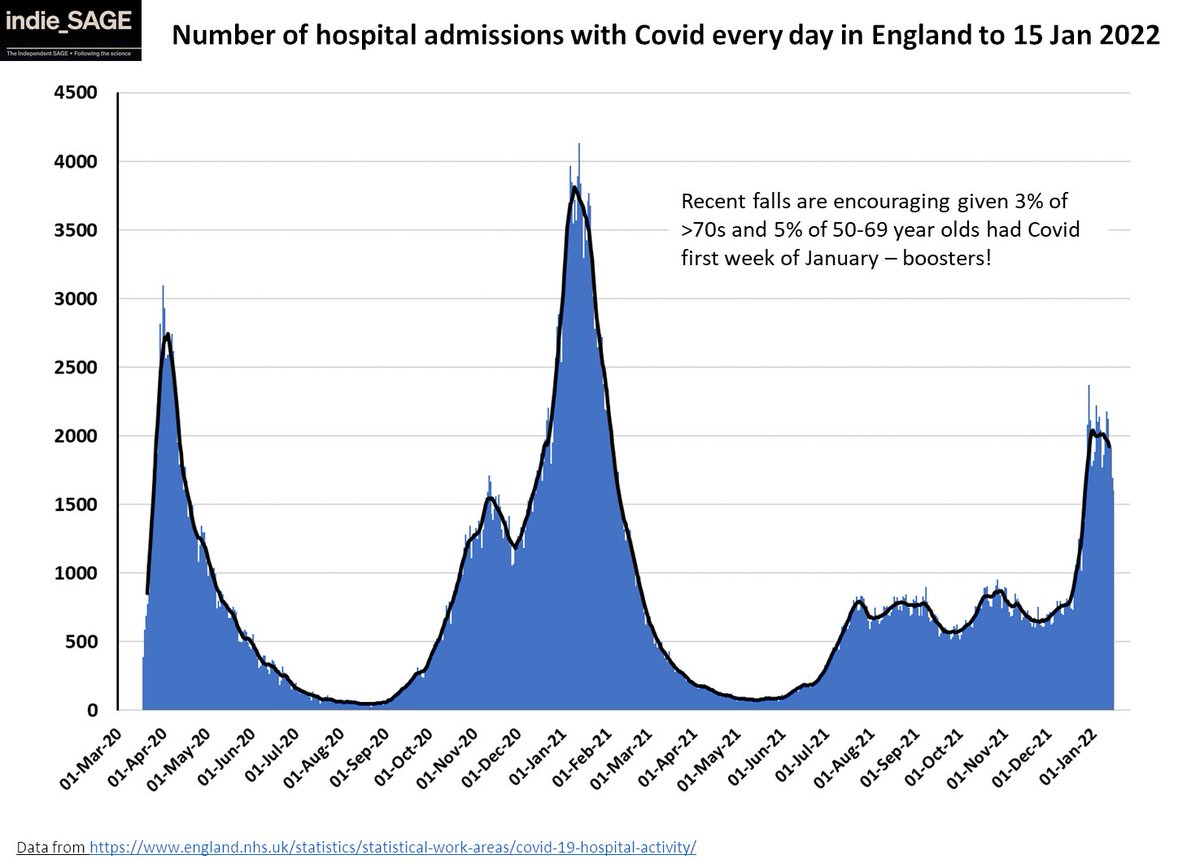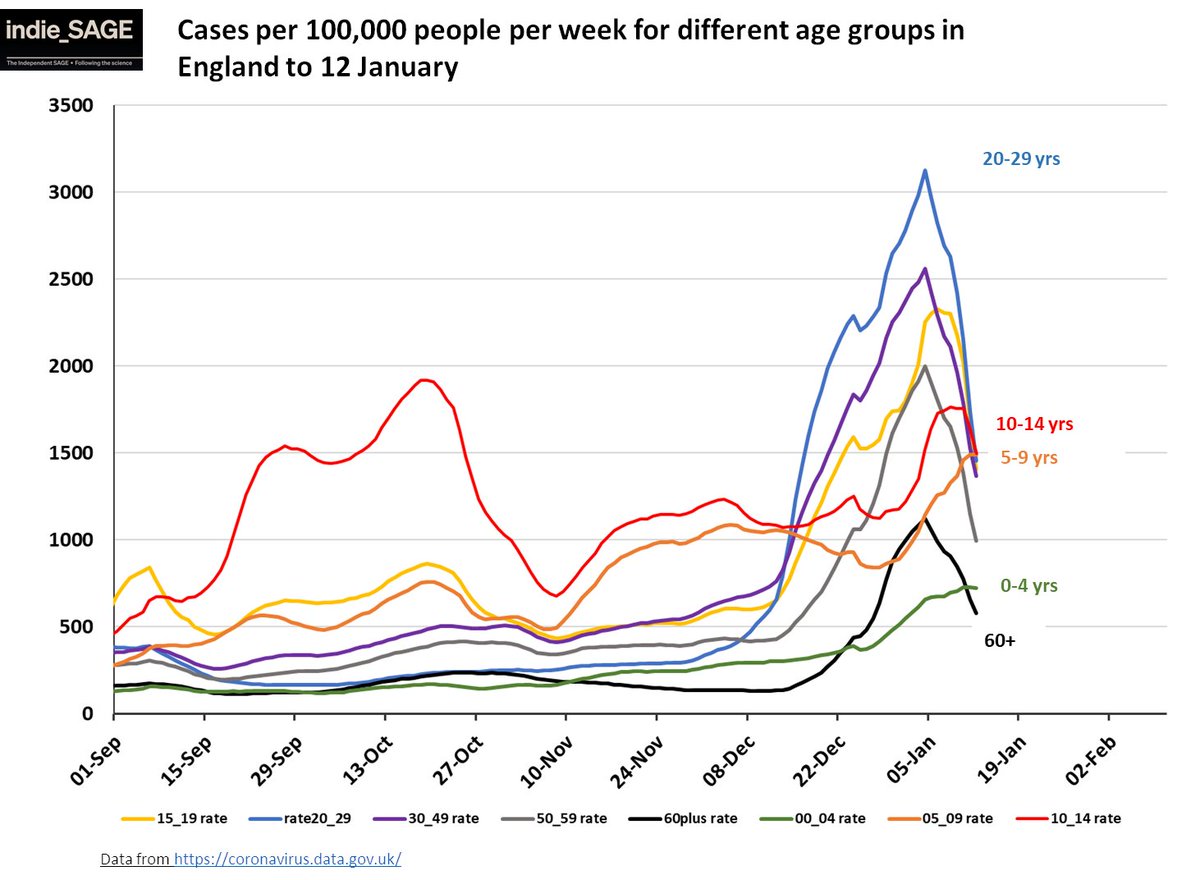THREAD: Quick UK Covid update...
I didn't get chance to do thread after Friday @IndependentSage briefing (viewable here: )
so here is a quick update.
TLDR: cases and admissions have likely peaked, but expect schools to prolong the wave... 1/10
I didn't get chance to do thread after Friday @IndependentSage briefing (viewable here: )
so here is a quick update.
TLDR: cases and admissions have likely peaked, but expect schools to prolong the wave... 1/10
Reported cases have peaked and in all nations.
While many things affect case reporting, positivity rates are also falling (good). ONS always lags by a week or two, but hopefully we will see sustained drops in a week or two.
BUT prevalence is still *extraordinarily* high. 2/10



While many things affect case reporting, positivity rates are also falling (good). ONS always lags by a week or two, but hopefully we will see sustained drops in a week or two.
BUT prevalence is still *extraordinarily* high. 2/10




Cases are now falling in all English regions - you can see a clear pre-Xmas change in London likely driven by people cancelling plans to avoid being sick at Xmas.
NE last to peak, but it has.
Again ONS is a bit lagged, but shows London has and other regions flattening 3/10


NE last to peak, but it has.
Again ONS is a bit lagged, but shows London has and other regions flattening 3/10



Hospital occupancy is falling in N Ireland and slowing in other nations. Occupancy close to first 2020 wave.
Looks like admissions have peaked - but remain high - across England. ICUs however have not been stressed by Covid this winter. 4/10



Looks like admissions have peaked - but remain high - across England. ICUs however have not been stressed by Covid this winter. 4/10




So admissions will not reach the levels in the SAGE Spi-M scenarios - SAGE think likely because people voluntarily reduced contacts during Omicron + boosters.
This is obv better news BUT do NOT think that NHS has coped... 5/10
This is obv better news BUT do NOT think that NHS has coped... 5/10
Many staff are off sick & A&E's are overflowing. Waits are long, more than 1/6 hosps have declared critical incidents & cancelled treatments. Docs & nurses are sharing the moral injury of being forced to give suboptimal care.
@HelenRSalisbury here:
6/10



@HelenRSalisbury here:
6/10




Deaths have been going up - both by reported date (affected by holiday delays) and by date of death - in fact by date of death, we are seeing highest daily counts since Feb 2021 - before most people were vaccinated. 7/10 



Boosters have been key this winter - but after a massive pre-Xmas surge, demand has dropped off a cliff. Not surprising given people keep being told that Omicron is fine and it's over.
But it's not and it isn't and boosters are vital.
Plus most children are NOT vaxxed 8/10

But it's not and it isn't and boosters are vital.
Plus most children are NOT vaxxed 8/10


Speaking of children... while reported cases are going down in all adult age groups and teenagers, they are *not* in pre school and primary age children.
This comes with disruption -> 300K children off first week of term and many teachers 9/10


This comes with disruption -> 300K children off first week of term and many teachers 9/10



Hosp admissions in kids, esp under 5's, have been v v high (but now falling?). More kids admitted last month than first 8 months of pandemic.
Most stay in hosp only a day or two BUT they would likely be at home if no covid.
We should care more about kids getting covid. 10/10



Most stay in hosp only a day or two BUT they would likely be at home if no covid.
We should care more about kids getting covid. 10/10




• • •
Missing some Tweet in this thread? You can try to
force a refresh























